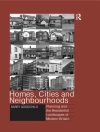This book provides a comprehensive assessment of how national and international efforts to achieve carbon neutrality have been embraced as necessary to meet the requirements of the Paris Agreement as well as the needs of the planet. The authors explore the increasing tensions between aspirations and entrenched practices as methods to implement carbon neutrality are devised, particularly at the national and sub-national levels. This is perhaps best typified by efforts to shift from “dirty” energy production, such as coal, to greener alternatives, which are often supported in laws and rules but opposed by society. To bridge this void, the concept of just transitions has increasingly come to the forefront of international and national focus yet is often poorly understood. This book examines the ways in which just transitions have been proposed as a legal and regulatory bridge to address issues that result in societal resistance to implementation. It uses past and existing practice studiesof just transitions before providing an analysis of how just transitions can be used to not only to assist in the shift to carbon neutrality but also in new shifts such as those caused by the Covid-19 pandemic impacts on economy, environment and society, and to address future global challenges.
विषयसूची
Chapter 1 Introduction.- Chapter 2 Legal and Regulatory Background.- Chapter 3 Case Study – Just Transitions in the United States.- Chapter 4 Case Study – Just Transitions in Canada.- Chapter 5 Case Study – Just Transitions in Poland.- Chapter 6 Lessons for Climate Issues.- Chapter 7 Lessons for Post-Covid-19 Pandemic Recovery Transitions.- Chapter 8 Conclusion.
लेखक के बारे में
Dr. Alexandra R. Harrington is a Lecturer in Law (Environment) at Lancaster University Law School. She has held two Fulbright terms in Canada at the Balsillie School of International Affairs, focusing on global governance issues. Dr. Harrington is the author and co-editor of several books, including International Organizations and the Law and International Law and Global Governance: Treaty Regimes and Sustainable Development Goals Interpretation. She routinely advises international organizations and governments on governance issues, environmental law, legal issues relating to climate change, sustainable development and international human rights law. A native of the United States and the United Kingdom, she holds a Doctorate of Civil Law (Mc Gill University Faculty of Law), in addition to a JD, LL.M. and BA degrees in Politics and History.












